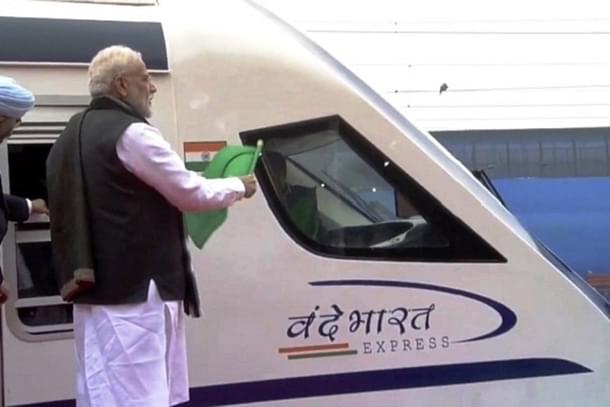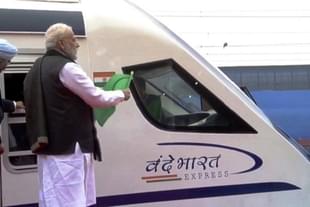News Brief
PM GatiShakti Mega Infrastructure Plan To End Departmental Silos And Improve Multi-modal Connectivity
India Infrahub
Oct 13, 2021, 10:53 AM | Updated 10:57 AM IST
Save & read from anywhere!
Bookmark stories for easy access on any device or the Swarajya app.


Prime Minister Narendra Modi will launch PM GatiShakti - National Master Plan for multi-modal connectivity on Wednesday (13 October) at Pragati Maidan, New Delhi.
The mega infrastructure plan will incorporate the infrastructure schemes of various Ministries and State Governments like Bharatmala, Sagarmala, inland waterways, dry/land ports, UDAN etc.
Economic zones like textile clusters, pharmaceutical clusters, defence corridors, electronic parks, industrial corridors, fishing clusters, Agri zones will be covered to improve connectivity and make Indian businesses more competitive.
The plan will also leverage technology extensively, including spatial planning tools with ISRO imagery developed by BiSAG-N (Bhaskaracharya National Institute for Space Applications and Geoinformatics).
"Infrastructure creation in India had suffered for decades from multiple issues. There was lack of coordination between different Departments, for example, once a road was constructed, other agencies dug up the constructed road again for activities like laying of underground cables, gas pipelines etc," the Prime Minister'sMinister's Office said.
"This not only caused great inconvenience but was also a wasteful expenditure. To address this, efforts were put in place to increase coordination so that all cables, pipelines etc. could be laid simultaneously. Steps have also been taken to address other issues like time-taking approval process, multiplicity of regulatory clearances etc," it added.
PM GatiShakti will address the past issues through institutionalising holistic planning for stakeholders for significant infrastructure projects. Instead of planning and designing separately in silos, the projects will be created and executed with a shared vision.
PM GatiShakti is based on six pillars:
Six Pillars Of GatiShakti
PM GatiShakti is based on six pillars: Comprehensiveness, Prioritisation, Optimisation, Synchronization, Analytical, and Dynamic.
1. Comprehensiveness: It will include all the existing and planned initiatives of various Ministries and Departments with one centralised portal. Every department will now have visibility of each other's activities, providing critical data while planning and executing projects in a comprehensive manner.
2. Prioritisation: Through this, different Departments will be able to prioritise their projects through cross-sectoral interactions.
3. Optimisation: The National Master Plan will assist different ministries in planning for projects after identifying critical gaps. For the transportation of the goods from one place to another, the plan will help select the most optimum route in terms of time and cost.
4. Synchronisation: Individual Ministries and Departments often work in silos. There is a lack of coordination in the planning and implementation of the project resulting in delays. PM GatiShakti will help synchronise each department's activities, as well as of different layers of governance, holistically by ensuring coordination of work between them.
5. Analytical: The plan will provide the entire data at one place with GIS-based spatial planning and analytical tools having 200+ layers, enabling better visibility to the executing agency.
6. Dynamic: All Ministries and Departments will now be able to visualise, review and monitor the progress of cross-sectoral projects through the GIS platform, as the satellite imagery will give on-ground gain periodically, and progress of the projects will be updated on a regular basis on the portal. It will help in identifying the vital interventions for enhancing and updating the master plan.
PM GatiShakti will provide the public and business community information regarding the upcoming connectivity projects, other business hubs, industrial areas and surrounding environment. This facility will enable the investors to plan their businesses at suitable locations leading to enhanced synergies.
"The plan will create multiple employment opportunities and give a boost to the economy. It will improve the global competitiveness of local products by cutting down the logistics costs and improving the supply chains, and also ensure proper linkages for local industry and consumers," the official statement said.





